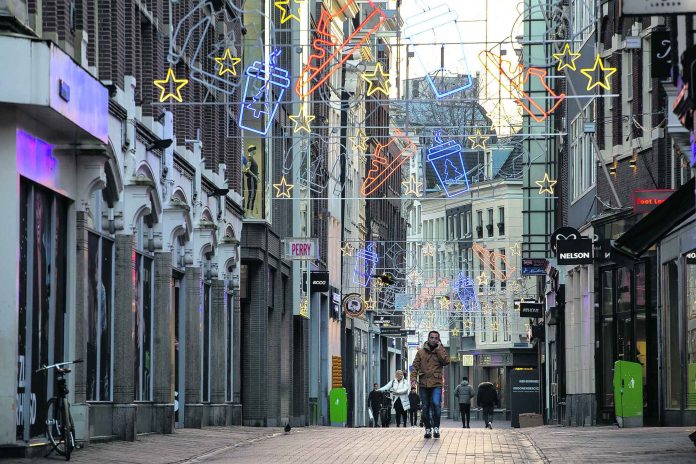
By MIKE CORDER
Associated Press
THE HAGUE, Netherlands (AP) — The Dutch government on Wednesday tightened even further the strict five-week coronavirus lockdown that went into force just a day earlier, amid a backlash over some large stores remaining open.
Opposition lawmakers criticized lockdown rules that allowed stores to remain at least partially open if some of the products they sell are considered “essential” such as food and sanitary products.
Green Left party leader Jess Klaver tweeted that allowing large chains to stay open while small local stores are forced to shut their doors to rein in infections “is the exact opposite of the solidarity we so badly need during this lockdown.”
The government moved swiftly to bring an end to an issue that threatened to undermine generally wide support for the lockdown.
In a letter to parliament, the government said that only stores where sales of essential items such as food, non-prescription medicines, pet food and sanitary products amounted to more than 70% of their turnover would be allowed to remain open.
One of the companies that had faced criticism for opening stores, Hema, said in a statement it would close all its shops on Thursday. A fixture in most Dutch towns and cities, Hema stores sell everything from food to clothing, stationery and kitchen equipment.
“It is a shame that previously-made clear agreements that could have led to Hema contributing to the spreading of shop visits cannot be achieved,” the chain’s CEO Tjeerd Jegen said. “At the same time, (these times) require flexibility and tolerance. That also applies to us. If that means we have to close our doors to ensure health, we will.”
Schools closed Wednesday and streets in Dutch towns and cities were far less busy than in previous days and weeks when local authorities sometimes had to call on people not to visit overcrowded shopping streets.
In the central city of Utrecht, Michale Moelens said the government waited too long to put the country in lockdown.
“A lot of people get sick for nothing because they could (have handled) this much earlier,” Moelens said.
















